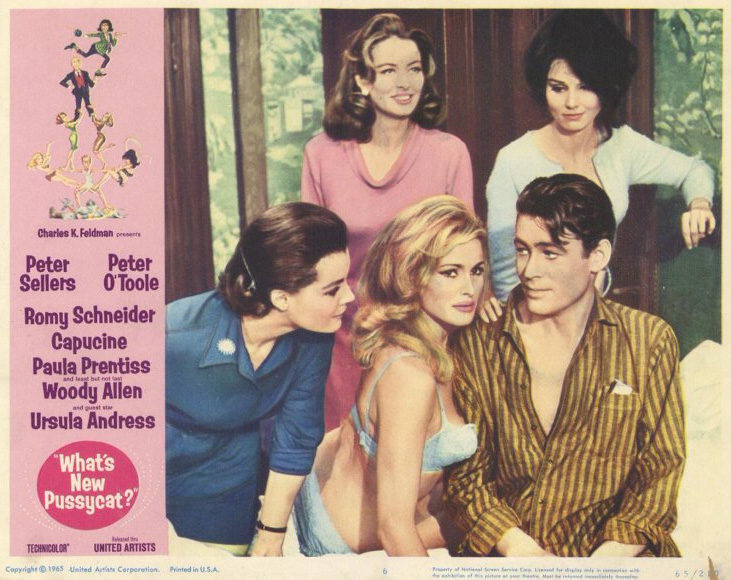The Asheville Film Society will screen What’s New Pussycat? Tuesday, Jan. 5, at 8 p.m. in Theater Six at The Carolina Asheville, hosted by Xpress movie critic Ken Hanke.

What’s New Pussycat?
Movie Information
| Score: | |
| Genre: | Comedy |
| Director: | Clive Donner (Nothing But the Best) |
| Starring: | Peter Sellers, Peter O'Toole, Romy Schneider, Capucine, Paula Prentiss, Woody Allen, Ursula Andress |
| Rated: | NR |


And of course the song “What’s New Pussycat?” is so deeply entrenched in the minds of some of us, that just the mere mention of this film brings that back into an endless loop circling and singing to us without relief.
I would love to see this combination of people in a movie. Again. ( Saw it when I was a teen and that memory is vague indeed)
I’ll be interested just to see it with an audience, since I’ve only seen it on TV in the privacy of my home — at which time an in-joke or two in Casino Royale (1967) suddenly made more sense. I wonder if the more free-wheeling sensibility of that time will connect with a modern audience.
I am hoping that we have become more freewheeling in our sensibility, but that is possibly wishful thinking.
I fear we have become so afraid of offending that we have become less so.
I think you are correct. Sadly.